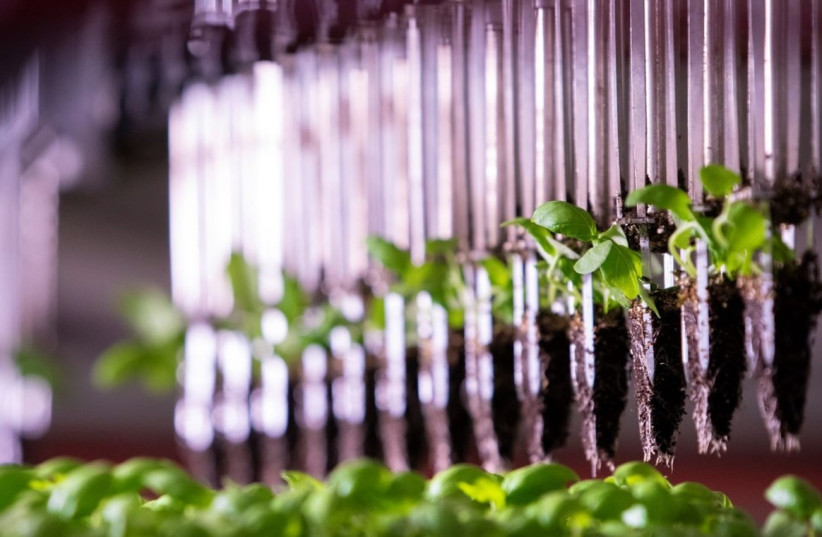“Most people don’t have homegrown gardens because it takes time, money and effort,” Dr. Daniel Barkan told me at the PLANETech World 2022 climate-tech conference earlier this week.
The resources he mentioned seem to be in increasingly short supply, but Barkan is convinced that the perfect solution for people who want a homegrown garden and have no time for one is his company’s self-named product, Agwa. Agwa is a home appliance smaller than a dishwasher, and it produces rows of freshly grown and professionally maintained vegetables all on its own.
As we sat beside Agwa’s booth amid a bustling crowd of climate-tech aficionados, Barkan explained how the 60cm-by-60cm machine houses a spread of sensors and systems, which monitor and control a host of variables like humidity, soil nutrients and water in order to create ideal conditions for growing up to 59 vegetables.
“During the Corona [period] a lot of people started eating farm-to-table; this cuts everybody out of the middle — you're the farmer.”
Daniel Barkan
Each of the 120cm unit’s three floors has a camera used to monitor the health of the crops growing within. These camera feeds go to an AI system that identifies and flags unhealthy-looking plants, which are then reviewed and fixed up by Agwa’s standing team of professional agronomists.

“Most of the time, we know there’s something wrong even before the customer notices, and we take care of it remotely,” Barkan said.
Certainly, Agwa isn’t the only in-house garden system on the market, but for those interested in a strictly “set it and forget it” gardening experience, it may be worth considering. “During the corona [period], a lot of people started eating farm-to-table; this cuts everybody out of the middle – you’re the farmer,” said Barkan.
Agri-tech: Feeding the folks of the future
Becoming your own farmer may become one of the better ways to stay fed in the coming decades, as trends of population growth and diminishing resources suggest more challenges for the world’s food producers.
“In the next 20 to 30 years, the world’s population will grow to 10 billion people. We have to double food production, and do it with less land and less resources,” said Bar Veinstein, CEO of Taranis, an agritech company that uses AI and drone imaging to help farmers optimize their crops.
In an interview earlier this year, Veinstein noted that “there are less fields in the world. Consumption is growing because the middle class is evolving in many countries, and [maintaining] that requires a higher protein intake,” all of which pose a significant challenge.
Fortunately, Israel’s agritech sector is beginning to gain momentum, as more start-ups appear with innovative farming solutions. At the Morocco-Israel Connect to Innovate conference in Casablanca in May, several agritech start-ups signed MOUs with Moroccan investors interested in bringing the technology to the region.
“It has been only 18 months since we signed and re-established diplomatic relationships with the Kingdom of Morocco, and while governments [sign] treaties, people are the ones who are actually building peace,” said Science and Technology Minister Orit Farkash-Hacohen, who made an appearance at the conference. “This event [that focused] on the connection between the two communities in areas of energy, agriculture, climate, water and more is a true expression of that peace.”
